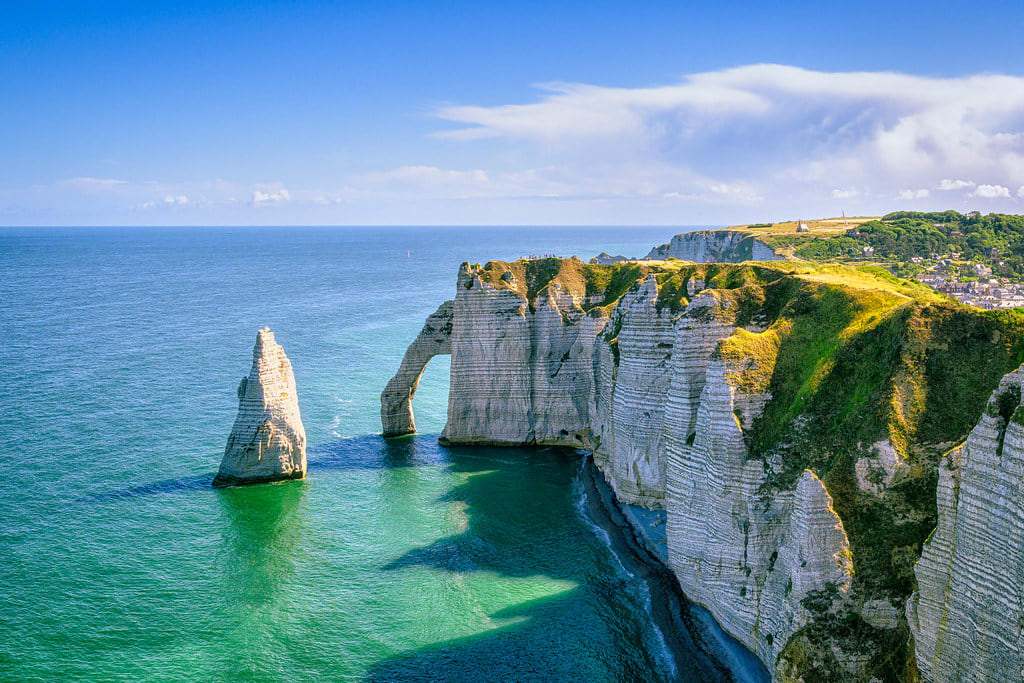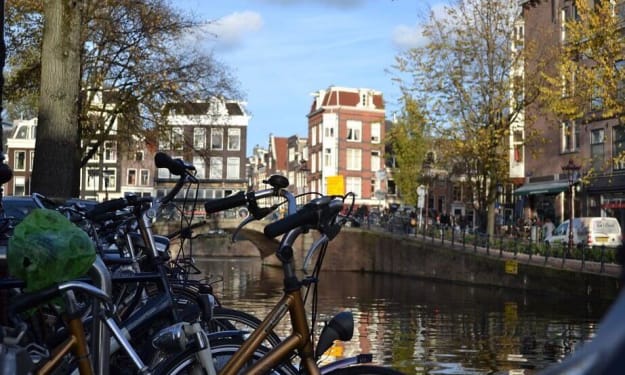
Normandy, French Normandie, notable and social district of northern France including the départements of Manche, Calvados, Orne, Eure, and Seine-Oceanic and coextensive with the previous territory of Normandy. It was reproduced as a managerial element in 2016 with the association of the régions of Basse-Normandie and Haute-Normandie.
Antiquated history
The Seine and Eure valleys were occupied from Paleolithic times. Their Celtic occupants were vanquished by Julius Caesar in 56 BCE, and the district in the end turned into the Roman territory of Gallia Lugdunensis Secunda. Its occupants were Christianized in the third and fourth hundreds of years CE and passed under Merovingian Frankish rule in the late fifth 100 years, turning out to be important for the Frankish realm of Neustria.
The Normandy coast was over and over crushed by attacks of the Vikings, or Northmen, from the eighth 100 years on, and, as its Carolingian rulers became more vulnerable, the Vikings entered farther inland throughout their plunders. At last the French lord Charles III the Basic surrendered the region around Rouen and the mouth of the Seine Waterway to Rollo, the head of the biggest band of Vikings, in the Arrangement of St. Clair-sur-Epte (911). Rollo's Scandinavian compatriots moved in huge numbers to settle the nation, and they embraced the French language, customs, and religion. These Vikings became known as Normans, and the area they settled became known as Normandy.
Rollo's Christianized replacements to the dukedom of Normandy gained adjoining regions in a progression of wars, turning out to be strong to such an extent that the control they practiced over their spaces was essentially free of the French crown. William, duke of Normandy and a far off replacement to Rollo, mounted an attack of Britain in 1066, becoming William I of Britain (William the Winner) and hence joining the standard of Britain and Normandy in himself. At the point when William passed on in 1087, the individual association of Normandy and Britain was broken as his children questioned the progression. Their congenial squabbles finished in 1106, when one child, Henry I, lord of Britain, crushed his sibling, Robert, duke of Normandy, in the Clash of Tinchebrai, after which the progression in Normandy briefly passed to the English rulers. Notwithstanding, in 1144 Geoffrey Plantagenet, count of Anjou, vanquished Normandy. In 1150 he surrendered the duchy to his child Henry, who later became ruler of Britain as Henry II in 1154.
In this manner Normandy turned out to be important for the supposed Angevin (from Anjou) domain, which was a progression of remote governed by Henry II and succeeding English rulers. Be that as it may, Normandy hence turned into an essential target for the Capetian rulers of France in their battle against the Plantagenet Angevins of Britain. The military and discretionary battles of the French Capetian rulers Louis VII and Philip II Augustus to deal with the area from its English Angevin rulers finished in the total triumph and extension of Normandy by Philip in 1204. Notwithstanding, it was exclusively with the Arrangement of Paris (1259) that the English crown in the individual of Henry III officially given its case over to Normandy, subsequently recognizing the deficiency of the duchy to France. The English hence reconquered Normandy in the mid fifteenth hundred years during the Hundred Years' Conflict, however the French again recuperated it, accomplishing long-lasting control in 1450 after their triumph in the Skirmish of Formigny.
The French territory
Louis XI of France gave the duchy of Normandy to his sibling Charles in 1465 yet before long took it back lastly convinced the French Domains General at Visits in 1468 to announce Normandy unavoidable from the French crown. From there on Normandy was represented as a territory.
Louis XIV's intendants attempted to acclimatize Normandy's organizations to those of France and to advance its business and its sea movement. The renouncement of the Decree of Nantes (1685) prompted a mass migration of Huguenots, who had contributed significantly both to the economy and to the naval force, yet all things considered Normandy before long recuperated its flourishing in the eighteenth 100 years. In 1791 the French Progressive government partitioned the old area of Normandy into the départements of Manche, Calvados, Orne, Eure, and Seine-Inférieure (presently Seine-Oceanic). The name Normandy happens throughout the entire existence of The Second Great War as the site of the Unified attack of German-involved France in June of 1944. In 2016 the Basse-Normandie région was gotten together with the région of Haute-Normandie to frame the new managerial element of Normandy.
Quite a bit of Normandy actually holds a rustic person, involving level meadows and farmlands hindered by delicate slopes and the supports that generally outline fields. Agribusiness currently utilizes not many individuals however is profoundly enhanced, going from the enormous oat homesteads of the Vexin to the dairying and pony raising exercises of the Pays d'Auge. Populace and financial movement are focused essentially along the lower Seine valley (overwhelmed by Rouen and Le Havre) or in the bigger metropolitan communities like Caen, Cherbourg, and Alençon. The district was once well known for its material and metallurgical enterprises, yet presently the prevailing exercises incorporate oil refining and petrochemicals (lower Seine valley) and a scope of mechanical and electrical designing businesses including auto produce. Rouen and Caen are the main managerial and business focuses.
Roman Catholicism prevails, however there were many believers to Protestantism after 1528. Protestant territories stay in Rouen, Caen, and the town of Luneray in Seine-Sea. The impact of the Roman Catholic Church is still exceptionally apparent in the customary existence of the locale, especially in the exercises of the fellowships of good cause supported by numerous nation houses of worship. Normandy has numerous noteworthy fairs and celebrations, remembering a worldwide celebration of music and legends for the town of Gisors toward the beginning of July.
The names of Norman spots and families show Nordic, Somewhat English Saxon, and Frankish impacts. The Norman patois, which consolidates various English articulations and expressions of Nordic determination, is in decline.
Norman cooking depends intensely on cream, which is presented with eggs, fish, poultry, and vegetables. Calvados produces standout apple juice, which is matured with nuts in little oaken barrels or refined into the praised apple cognac that bears its name.






Comments
There are no comments for this story
Be the first to respond and start the conversation.